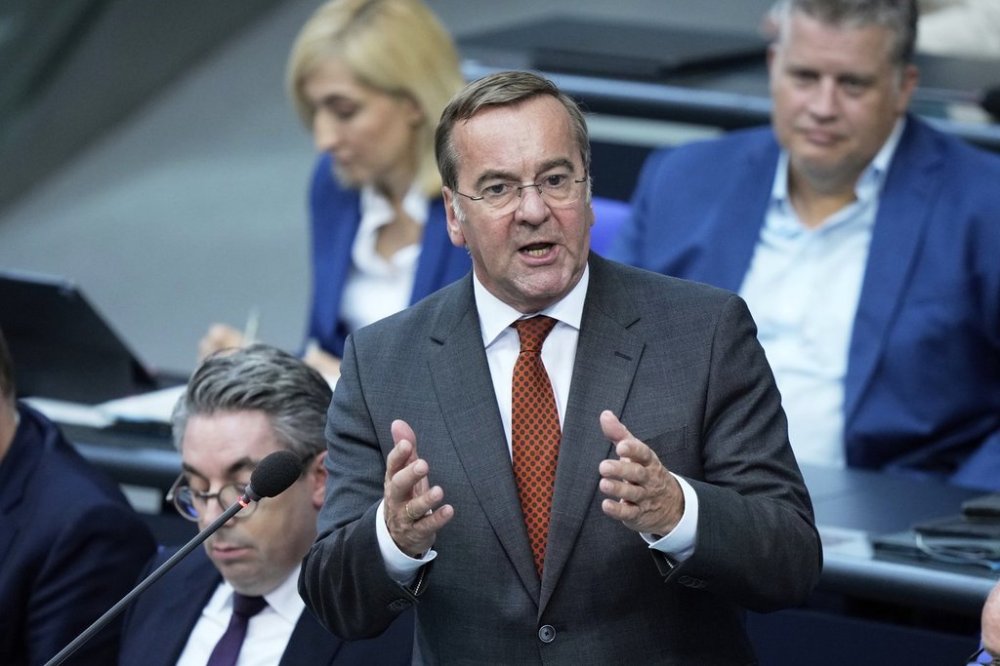Russia is tracking two satellites used by the German military, defense minister says
Advertisement
Read this article for free:
or
Already have an account? Log in here »
To continue reading, please subscribe:
Monthly Digital Subscription
$0 for the first 4 weeks*
- Enjoy unlimited reading on winnipegfreepress.com
- Read the E-Edition, our digital replica newspaper
- Access News Break, our award-winning app
- Play interactive puzzles
*No charge for 4 weeks then price increases to the regular rate of $19.00 plus GST every four weeks. Offer available to new and qualified returning subscribers only. Cancel any time.
Monthly Digital Subscription
$4.75/week*
- Enjoy unlimited reading on winnipegfreepress.com
- Read the E-Edition, our digital replica newspaper
- Access News Break, our award-winning app
- Play interactive puzzles
*Billed as $19 plus GST every four weeks. Cancel any time.
To continue reading, please subscribe:
Add Free Press access to your Brandon Sun subscription for only an additional
$1 for the first 4 weeks*
*Your next subscription payment will increase by $1.00 and you will be charged $16.99 plus GST for four weeks. After four weeks, your payment will increase to $23.99 plus GST every four weeks.
Read unlimited articles for free today:
or
Already have an account? Log in here »
BERLIN (AP) — Russia is currently tracking two Intelsat satellites used by the German military, a senior minister said on Thursday
German Defence Minister Boris Pistorius revealed the active operations as he announced a €35 billion ($41 billion) investment in his country’s space programs over the next five years.
Pistorius said Russia and China have the capability to engage in space warfare and already occupy strategic positions in space.

“They can jam, blind, manipulate, or kinetically disrupt satellites,” he told a space conference in Berlin, adding that the German military has already been targeted by jamming attacks.
Russia did not immediately respond to a request for comment.
Pistorius said two Russian Luch-Olymp reconnaissance satellites are tracking two Intelsat satellites that are used by, among others, the German armed forces.
The minister said that as he was speaking, “39 Chinese and Russian reconnaissance satellites are flying over us,” with their observations being transmitted in real-time. “So be careful what you say,” he added.
Europe lags behind the United States, China and Russia in space.
For decades, Europe has relied upon the U.S. for its security in space, but the Trump administration’s “America First” policies, plus a commercial market that’s growing exponentially, has prompted Europeans to rethink their approach.
Currently, Europe’s only space base capable of launching rockets and satellites into orbit is in sparsely populated French Guiana, an overseas department of France in South America that’s roughly 500 kilometers (310 miles) north of the equator. Otherwise, Europe borrows NASA’s Cape Canaveral in Florida.

